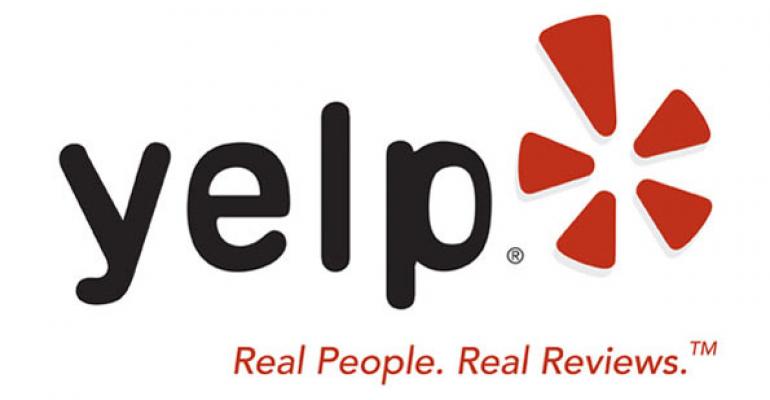We grant that, in the name of transparency, it’s good that customers know the restaurants in which they intend to eat have passed a rigorous health inspection. But we’re not so sure it’s a good idea for city and county health departments to have partnered with review site Yelp to create the data standard that makes the inspection details accessible. That’s especially true in light of the 685 complaints against Yelp now on file with the Federal Trade Commission, most of them coming from restaurant owners.
Writer Robert Delaware recently filed a Freedom of Information request for Yelp-related complaints, among other complaints about the site's practice. Most complaints allege that Yelp manipulates positive and negative data on a restaurant’s page to better sell ads to that restaurant.
We don’t know if this is in fact the case, and the FTC notes that “the enclosed complaints have not been verified by the FTC.” But there are so many of them you’d think public officials would be leery of any sort of formal relationship with Yelp. Instead, cities were eager to open up their health inspection data to the company.
Here’s how Yelp characterized the arrangement in a blog posting in January:
“Today, we're excited to join San Francisco Mayor Ed Lee in announcing that restaurant hygiene scores from the City of San Francisco will be imported onto Yelp business pages. This is huge news in itself, but perhaps the bigger news is what we’ve created to enable this new business attribute: a new open data standard—the “Local Inspector Value-entry Specification” or, simply, LIVES.
“The LIVES standard was co-developed by Yelp and the technology departments of the cities of San Francisco and New York. The standard was created with the guidance and encouragement of the White House.”
It’s expected that other big cities will soon open up their health inspection databases to Yelp. Philadelphia, Boston and Chicago are next in line.
The problem we see isn’t that potential diners will see an A, B, or C letter grade or a 1 to 100 numerical score on a restaurant’s Yelp page. Rather, the trouble will arise when a restaurant’s potential customers click through to learn the details of the inspection that produced that letter grade or number awarded to the restaurant.
Let’s look at one of the examples Yelp uses in its announcement to show how the new standard works.
Ask yourself: What customer is going to want to eat at a restaurant where the health inspector found “non food contact surface unclean,” noted that “floors, walls, ceilings improperly constructed, in disrepair, not clean” and, worst of all, discovered the presence of “rodents/roaches/flies/other animals.” Sounds like a real hellhole, but the restaurant in question, The Cheese Steak Shop on Divisadero Street in San Francisco, actually got a solid-to-good health score of 92 out of 100.
Let’s face it. The raw material of even very good restaurant health inspection reports contains language that would make most people not want to eat there. Anyone looking to cast a “veto vote” on eating at your restaurant will now have plenty of evidence.
So what happens if your restaurant’s health inspection data on Yelp is wrong, or out of date? According to the disclaimer Yelp posts on a restaurant’s health inspection data page, you’re on your own.
“We collect public inspection data directly from your city’s health department. Due to the city health department’s inspection schedule as well as the time it takes to pass that information on to us, it is possible that a business has corrected their previous violations before they are updated on Yelp. Please report any such inaccuracies to your city’s Health Department.”
Will other restaurant review services follow suit? We’ll find out soon.




